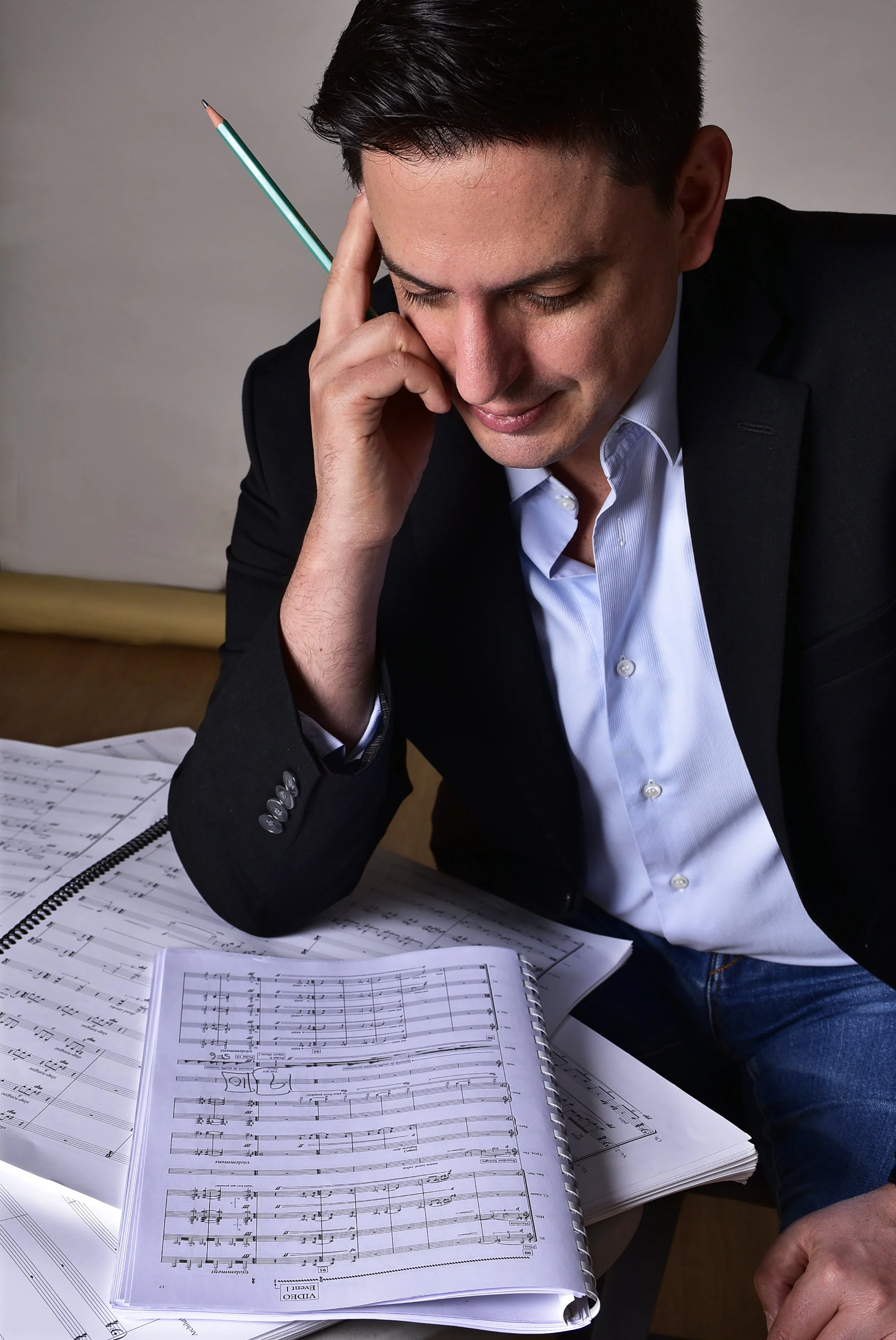The music of award-winning composer Antonio Juan-Marcos has been described as “seductive and sensitive” (ResMusica), music that “introduces rich acoustic universes” (Diapason), filled with “beautiful, mysterious, and delicate atmospheres” (Musikzen). Having gained renown for his instrumental ensemble and orchestral music, Juan-Marcos’ work reaches across disciplines, as he often collaborates with authors, poets, video artists, and early music specialists. Literature is often a point of departure in Juan-Marcos’ work, ranging from 18th-century Italian sonnets to contemporary Latin American fiction and poetry.
Born in Mexico City, Antonio Juan-Marcos began his musical training studying classical guitar, later studying composition, piano, and guitar at the Boston Conservatory. In 2003 he continued his bachelor’s and master’s degrees at the Conservatoire National Supérieur de Musique et Danse de Paris, where he graduated with honors with the piece Arder Aprender. Later, he attended the Electroacoustic Composition courses at the Institut de Recherche et Coordination Acoustique/Musique (IRCAM) in Paris (2012-2013). Juan-Marcos received a doctoral degree in Music Composition at the University of California, Berkeley in 2018, where he also teaches harmony and theory.
Throughout his education, Juan-Marcos has had the privilege to present his works at festivals and academies across North America and Europe, and his mentors have included renowned contemporary composers such as Kaija Saariaho, Osvaldo Golijov, Stefano Gervasoni, Philippe Leroux, Edmund Campion, and Franck Bedrossian. His music has been presented in the United States, France, Belgium, Spain, and his native Mexico under the direction of conductors such as Miguel Harth-Bedoya, Pierre Roullier, José Areán, Patrick Cohën-Akenine, and David Milnes, among many others who have championed his work.
Additionally, Juan-Marcos’ pieces are included in the repertoires of prestigious ensembles and orchestras, among them the Fort Worth Symphony Orchestra, Orchestre National de Lorraine, Orquesta Filarmónica de la Ciudad de México, Orquesta de Cámara de Bellas Artes, Ensemble 2e2m, Les Folies françoises, Ensemble intercontemporain, and L’Instant Donné. His piece for cello and electronics, El Afilador, was recorded by the cellist Marie Ythier for Evidence Classics Records and distributed by Harmonia Mundi. His scores are published and distributed by Filarmonika Music Publishing.
In 2018 Juan-Marcos was awarded the American Prize in Composition – Orchestral Division for his work Amanece (2015) for countertenor soloist and orchestra, a setting of poems by the famed Mexican author Octavio Paz on the occasion of his birth centenary. In 2017, Juan-Marcos was distinguished with the Nicola Di Lorenzo Prize in Music Composition by the Department of Music at the University of California, Berkeley — for a second time — for his monodrama Tum Tambor (2017). The work, scored for countertenor, ensemble, and video, was inspired by the short story “Macario,” by prominent Latin American author Juan Rulfo, whose work was foundational to the genre of “magical realism.” Juan-Marcos received his first Nicola Di Lorenzo Prize in 2016 for Nocturno Eléctrico, a concerto for electric guitar and orchestra, which also received the 2017 Gold Medal and the highest honor distinction of the jury by the Global Music Awards. Also in 2016, he was awarded the Eisner Prize for the Highest Achievement in the Creative Arts by the University of California, Berkeley.

